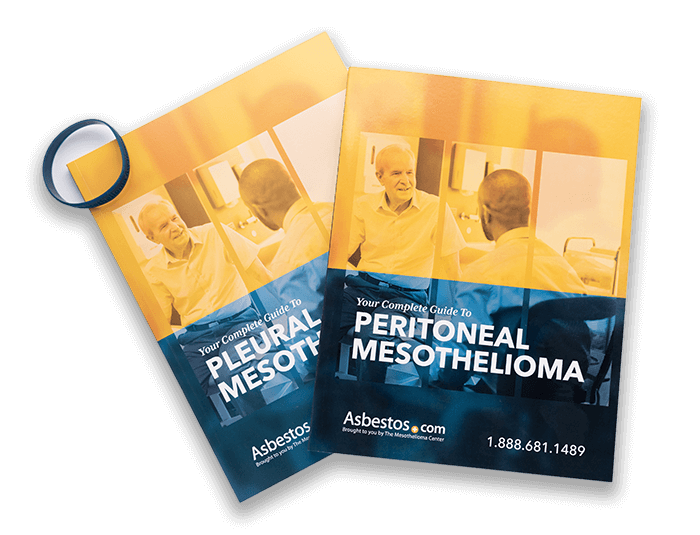Have you ever wondered how patients with mesothelioma navigate the emotional challenges that accompany their diagnosis? It’s an undeniably tough journey, laden with both physical and mental hurdles. Among these, anxiety and depression are particularly prevalent and can significantly impact the quality of life. Yet amidst these trying times, there’s hope and help available through mindfulness-based interventions.
Understanding the Emotional Impact of Mesothelioma
When faced with a mesothelioma diagnosis, patients often experience emotional turmoil akin to what other advanced cancer patients endure. Anxiety and depression are not uncommon, and they can weigh heavily on one’s mental health. These feelings can range from constant worry and panic to deep sadness and hopelessness, affecting almost every aspect of a person’s life. Acknowledge that what you’re feeling is valid and common among cancer patients, and reaching out for help is a courageous step.
Why Anxiety and Depression in Mesothelioma Patients Matter
The significance of addressing mental health issues in mesothelioma patients cannot be overstated. Anxiety and depression do not only impact emotional well-being but can also hinder treatment outcomes and recovery. When mental health is compromised, patients may struggle with adherence to treatment protocols and experience slower recovery rates. Hence, dealing with these emotions proactively is integral to the overall treatment plan.
Guidelines from Leading Oncology Societies
Leading organizations like the American Society of Clinical Oncology (ASCO) and the Society of Integrative Oncology (SIO) recognize the importance of comprehensive care that includes mental health treatments. Their guidelines align in advocating for integrative therapies, suggesting a blend of traditional and alternative methods to combat anxiety and depression in cancer patients. These recommendations aim to provide a more holistic approach to cancer care, ensuring that the emotional needs of patients are met alongside their physical treatments.
Integrative Therapies Recognized by ASCO and SIO
The integrative therapies recommended by ASCO and SIO encompass a variety of approaches designed to alleviate mental distress. These include, but are not limited to, psychotherapy, medication, and mind-body interventions like mindfulness. Mindfulness-based interventions are notably emphasized for their safety, accessibility, and effectiveness in managing psychological symptoms during and post-treatment.

What Are Mindfulness-Based Interventions?
Mindfulness-based interventions, or MBIs, revolve around the principle of mindfulness: cultivating a focused awareness on the present moment. By promoting self-awareness and reducing judgment towards one’s thoughts and feelings, MBIs aid in mitigating anxiety and depression. They offer a respite from the turmoil of racing thoughts, allowing patients to find calmness and clarity within.
Common Mindfulness Practices
These interventions can take several forms, each tailored to help individuals find peace and manage their mental health symptoms better. Some common mindfulness practices include:
- Meditation: Guided or unguided sessions that encourage deep mental focus and relaxation.
- Gentle stretching: Movements to loosen tight muscles and improve body awareness.
- Relaxation exercises: Techniques aimed at reducing tension and promoting tranquility.
Practicing these regularly can holistically benefit mind and body, helping you to navigate daily stressors more effectively.
Mindfulness-Based Stress Reduction (MBSR) and Mindfulness-Based Cognitive Therapy (MBCT)
Two popular approaches within mindfulness interventions are MBSR and MBCT. They offer structured programs that have been widely applied in treating psychological issues in cancer patients.
Mindfulness-Based Stress Reduction (MBSR)
Developed by Dr. Jon Kabat-Zinn, MBSR is an established program that uses mindfulness to help people handle stress, pain, and illness better. The program often includes group sessions, mindfulness training, and yoga, designed to bring about greater awareness and reduce stress levels.
Mindfulness-Based Cognitive Therapy (MBCT)
MBCT combines traditional cognitive behavioral techniques with mindfulness strategies. Its focus is on preventing the recurrence of depression, primarily through awareness of thoughts and feelings. This technique helps you respond to them in a healthier, more balanced way, thereby reducing emotional distress.

How MBIs Help Mesothelioma Patients
Mindfulness practices encourage you to shift your focus to the present, helping ease the emotional weight of anxiety and depression. By breaking the cycle of negative thinking, MBIs provide a safe refuge from distress, allowing greater emotional resilience and peace.
Reducing Emotional Distress
The core of MBIs lies in helping you manage distress by fostering acceptance and understanding of your experiences without judgment. Instead of ruminating over what cannot be changed, you learn to appreciate each moment for what it is, significantly lowering emotional reactivity and stress.
Building Resilience and Emotional Well-being
Over time, regular mindfulness practice builds resilience. Mesothelioma patients often cite an improved sense of control over their emotions, which in turn enhances their emotional well-being. This newfound strength helps you face the challenges of cancer treatment with a more positive outlook.
Access to Mindfulness Programs for Mesothelioma Patients
Many cancer treatment centers have recognized the mental health benefits of mindfulness and offer dedicated programs for mesothelioma patients. These programs can be instrumental in providing structured support and community.
Online Mindfulness Options
For those who cannot access in-person programs, various online options are available. These provide greater flexibility and can be just as effective. Online mindfulness platforms offer an array of resources, including video tutorials, guided sessions, and community forums, ensuring that you can embark on this journey from the comfort of your home.

The Importance of Consulting Your Oncologist
Before starting any mindfulness-based interventions, it’s crucial to consult with your oncologist. They can provide valuable insights into how these practices can fit into your overall treatment plan. It’s important to approach mindfulness as a complementary therapy, thereby ensuring that all aspects of your health are well-coordinated.
Integrating Mindfulness into Your Treatment Journey
Your oncologist can guide you on the right time and type of mindfulness practices to adopt. While these interventions can greatly aid in emotional management, they are most effective when integrated with other medical and therapeutic interventions. Coordination with your healthcare team ensures that you receive comprehensive support suited to your specific needs.
Conclusion: Embracing Mindfulness for Better Mental Health
In conclusion, mindfulness-based interventions hold great promise for mesothelioma patients grappling with anxiety and depression. They offer a compassionate and supportive way to enhance mental well-being, enabling you to navigate the emotional landscape of cancer with increased awareness and resilience. Remember, seeking to improve mental health is a brave step, and adopting mindfulness is a journey—one that can lead to profound personal growth and peace amidst adversity.



